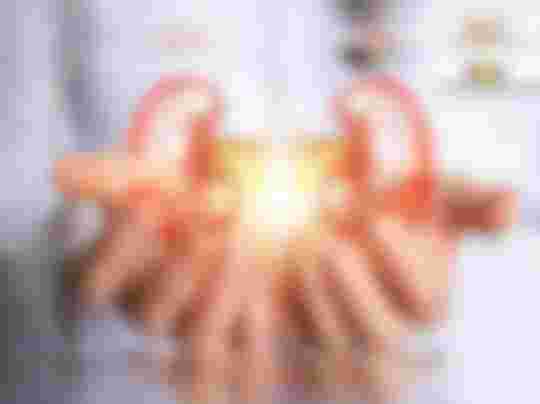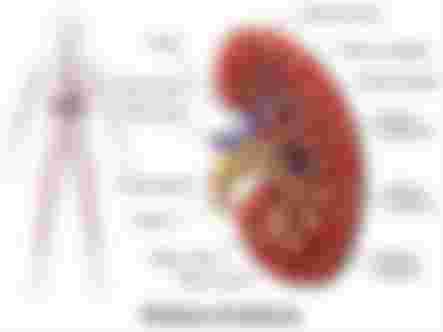Who does not want to be beautiful, healthy, strong and healthy?
The cleanliness of the outside of the body is in your hands, but the responsibility for the cleanliness of the inside of the body lies with the kidneys and the liver. The liver excretes various contaminants from the body through the bile along with the compounds.
The kidneys play an important role in removing unnecessary harmful substances from the body.
The number of patients suffering from Donnie's disease has increased dramatically in the last few years. Diabetes and high blood pressure are the main reasons for the increase in the number of patients with kidney failure.

Kidney:
The human body usually has two kidneys. The kidneys are located inside the abdomen, on the back, on both sides of the spine at the waist. The kidneys look like bean seeds and are shaped like fists.

The need for kidneys in our body is immense:
The kidneys purify the blood of our body, maintain the balance of fluids and metals in the body and regulate blood pressure. The kidneys help in making red blood cells and maintain bone health.
What are the symptoms of kidney disease?
The symptoms of kidney disease are of many types and it depends on the type and severity of the disease.
The most common symptoms are swelling of the mucous membranes (especially in the morning), nausea, vomiting, high blood pressure at an early age, weakness, decreased urination, burning or difficulty urinating, and the presence of blood in the urine.
At what point is a person with high blood pressure suspected of having kidney disease ???
If high blood pressure occurs at a very young age (30 years or less), if the blood pressure is too high at the time of diagnosis, if the blood pressure is not controlled by commonly used drugs.
Who is more likely to have kidney disease ???
Kidney disease can affect any person. However, people who have been suffering from high blood pressure or diabetes for a long time or who have been taking painkillers for a long time are more likely to get kidney disease. If you have hereditary kidney disease or if you have a congenital urinary tract problem, you are more likely to get kidney disease.
Which of the following tests is usually recommended to diagnose kidney disease ???
Doctors recommend appropriate tests depending on the patient's disease. Urine tests, serum creatinine and ultrasonography are the most common or important tests.
Kidney failure:

Decreased ability of the kidneys to purify or excrete is called kidney failure.
How is kidney failure diagnosed?
Serum creatinine, blood urea nitrogen and eGFR are the most common methods of diagnosing kidney failure.
At what time is it recommended to do kidney biopsy ????
Some special kidney diseases cannot be diagnosed by common methods. Kidney biopsy is the only way to diagnose those patients.
How to do a kidney biopsy??
The most common method is Percutaneous Needle Biopsy. In this method, a hollow needle is inserted into the skin of the kidney.
Does a person suffering from kidney failure have one kidney or two kidneys go bad together ???
Kidney failure occurs only if both kidneys are bad. Blood urea or serum creatinine is usually normal even if only one kidney has completely failed. But when both kidneys fail, waste products accumulate in the body, leading to high levels of blood urea and serum creatinine. This increased level of blood is a sign of kidney failure. Kidney failure cannot occur if only one of the two kidneys is damaged.
If one of the two kidneys fails or is removed, then the other normal kidney can do the normal functioning of the body properly because only one kidney is enough to do the normal functioning of the body.
Differences between Acute Kidney Failure and Chronic Kidney Failure:
In acute kidney failure, the function of the kidneys is stopped or reduced for a short period of time (some hours, days or weeks) due to special reasons. This type of kidney failure is short-lived and can be completely cured.
But over a long period of time (over a few months or a few years) slowly, a complete decline in kidney function is called chronic kidney failure. It is an incurable disease where the kidneys stop functioning for a long time. This deadly and life-threatening condition is called end-stage kidney disease.
Diet Chronic Kidney Disease:
Patients with chronic kidney disease are asked to control what foods they drink. Patients with chronic kidney disease need to control food intake as advised by doctors in order to maintain good health, reduce the burden on the kidneys and maintain control of fluids and ions in the body.
Here are some common tips for controlling food and drink:
** Control of salt intake in patients with high blood pressure.
** Reduce fluid and water intake if there is swelling in the body.
** Control of potassium and phosphorus.
**Adequate supply of sugars, vitamins and trace elements in the body.
Why should patients with chronic kidney disease control their intake of liquid food?
The amount of urine decreases in the same way as the kidneys get worse; as the amount of urine decreases, the amount of fluid in the body increases and the mouth and legs become swollen; blood pressure also rises; accumulation of fluid in the lungs results in difficulty in breathing. If left untreated, it can be fatal.
To get rid of these problems one is asked to control the intake of liquid food.
Which foods are high in salt (sodium) ???
Peel, pickle, potato chips, peanuts, etc.
Which foods are high in potassium ???
Fruit, fruit juice, coconut water, dried fruit etc.
Why do patients with chronic kidney disease control potassium ???
Excess potassium in the body of patients with chronic kidney disease cannot be excreted in the urine, resulting in elevated levels of potassium in the blood (hyperkalemia). Increased potassium levels weaken the muscles and the heart rate becomes irregular. This can lead to the death of the patient. This is exactly why patients with chronic kidney disease are advised to control potassium intake.
Dialysis:
When the kidneys stop working, dialysis is an artificial method that removes unnecessary wastes from the body. This is a life-saving procedure for patients with kidney failure.
There are two types of dialysis- hemodialysis and peritoneal dialysis.
When do patients with chronic kidney disease need dialysis ????
When kidney function is reduced by 80 to 90 percent (End Stage Kidney Disease (ESKD)), the kidneys cannot excrete waste products, leading to nausea, shortness of breath or bloating. In this case dialysis is required. A patient with chronic kidney disease requires dialysis when the serum creatinine level is 6 mg per deciliter or more.
If patients with kidney failure are on dialysis once, is it necessary for the whole life ????
How long dialysis will be needed depends on the type of kidney failure. Patients with acute kidney failure need only a short period of time (some days or weeks). Patients with chronic kidney disease (end stage kidney disease) need dialysis for life.
How is hemodialysis done?
In this method the blood is purified with the help of dialysis machine and dialyzer (artificial kidney).
What is A.V. fistula used in hemodialysis?
Arteriovenous fistula is the most common and best method for vascular access.
When is a kidney transplant needed ???

Kidney transplantation is required when patients with chronic kidney disease have a reduced kidney function of 75 to 90%.
Who can donate a kidney?
A healthy person with two kidneys and if the blood group, tissue type matches, then that person can donate a kidney. Kidney donors must be between the ages of 18 and 65. Kidney transplants donated by parents or children are the most successful. If a living kidney donor is not available then the deceased person's kidney has to be relied upon.

Kidney transplant benefits:
The main benefits of a successful kidney transplant are improved quality of life, freedom from dialysis, freedom from food and drink control and longer life expectancy.
Does the kidney recipient need to take any medicine or special precautions ???
Yes. Take regular medications (such as immunosuppressant drugs, antihypertensive drugs, vitamins, etc.) to lead a healthier life after a kidney transplant. And special caution is required. Prevention of infection, regular consultation of nephrologists and regular laboratory tests are required.
Dead Kidney Transplant:
Dead or Transplanted Kidney Transplant - An operation that transplants a healthy kidney of a person who has died of mental illness or heart disease into a patient with chronic kidney disease is called Deceased or cadaver kidney transplant. A mentally dead person or brain death is a complete loss of brain function that cannot be cured by any medication or surgery.
Brain Death is a diagnosis made by a hospital ventilator for surviving unconscious patients. When the ventilator support is removed, patients with brain death stop breathing or heart rate immediately.
Why do diabetics need to know about kidney disease ???
Diabetic nephropathy is one of the leading causes of chronic kidney disease. Diabetes is the cause of kidney failure in 40 to 50 percent of new patients with end-stage kidney disease. Timely diagnosis and treatment can prevent diabetic kidney disease.
How many diabetic patients have diabetic kidney disease ???
The number of patients with diabetic kidney disease is very high - usually 30 to 35% of type-1 diabetes mellitus and 10 to 40% of type-2 diabetes. The most common symptoms of diabetic kidney disease are: proteinuria, high blood pressure, swelling of the knees, legs or mouth, decreased need for insulin, and frequent low blood sugar.
How to prevent diabetic kidney disease ???
To prevent diabetic kidney disease:
Check with a doctor regularly.
2. Control over diabetes; need to keep HbA1C level 8 or lower.
Blood pressure needs to be below 130/80.
Keep the amount of salt and sugar in the diet low. Don't eat foods high in protein or fat.
Kidney tests need to be done once a year.
Exercise regularly, keep weight under. control, do not drink alcohol, use tobacco or take painkiller. The two main steps in the treatment of diabetic kidney disease are control over diabetes and high blood pressure.
Polycystic kidney disease:
How many people are likely to get this disease in the lineage ???
Polycystic kidney disease is a hereditary disease. Every child has a 50:50 chance.
How does polycystic kidney disease affect the kidneys ???
In this disease many fluid filled cysts of different sizes (small pin size or up to 10 cm). Over time, these cysts become larger in size and put pressure on the kidneys, causing high blood pressure and complete damage to the kidneys.
How is polycystic kidney disease diagnosed ????
Kidney ultrasound is the most common test. Also CT scans or MRI scans are more accurate tests but these are subject to cost.
The kidneys are a very important organ in the body. Within six weeks of birth, the human kidney's filter membrane is fully formed. Then the kidneys can start working in full force.

An adult has about 10 to 12 million filters per kidney, which purifies 170 liters of blood every 24 hours and excretes one to three liters of body waste in the form of urine. Kidney disease occurs when this filter or purification work is interrupted.
In addition, the kidneys play an important role in controlling blood pressure, helping to make blood and making vitamin D effective.

💞Thanks for reading 💞







Our most important part is our kidney. If it damage it may suffer us a lot. Sometimes it cause our death